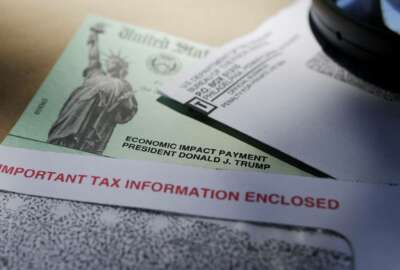Editor’s note: This post has been updated to reflect that TIGTA first identified the improper payments under the Economic Impact Payments program.
In typical Washington fashion, a cavalcade of Congress members, reporters and tsk-tskers lined up to criticize the IRS on the matter of checks going to deceased people and prisoners. As has been chewed to death, about 1 million checks totaling $1.4 billion went to addresses of those who had passed to the beyond or beyond the bars.
This occurred under the Economic Impact Payment program, part of the CARES Act.
The improper payments weren’t revealed by any of the external watchdog groups but rather by the Treasury Inspector General for Tax Administration. The finding was later cited by the Government Accountability Office. The improper payments were a function of the IRS — by law — not having access to the Social Security Administration’s most complete death records database. That’s what the GAO urged Congress to do, and also to require IRS to “consistently use” the data. TIGTA noted that by early May, the IRS had programmed around payments to prisoners and the deceased.
The GAO, in its typical dry, low-key manner, included this as in its “matters for Congressional consideration.” No one, including me, is arguing the erroneous checks are okay. What I am saying is that the episode needs to be put in context.
A few agencies, principally the Department of Health and Human Service, IRS, Small Business Administration, and Treasury Department got the call: Deal in a few weeks with money amounting to what you’d normally deal with in two or three years. And devise new programs on a mass scale and launch them immediately, oversight to follow.
Looked at in terms of dollars, the checks to the deceased amounted to a few hundredths of a percent of the (so far) $2.5 trillion Congress had printed up for coronavirus pandemic relief.
Looked at in terms of what the agency had to do, you see an agency that had to set aside the normal tax filing season and pivot to a stimulus check issuing mode. This occurred when IRS employees, like just about everyone else, were thrown out of their offices to telework during the pandemic.
The associate Treasury Inspector General for Tax Administration, Russ Martin, told me, “They did a pretty remarkable job.” I asked Martin whether he thought IRS employees were likely to have worked around the clock during the early stages of the pandemic. “I would say that’s definitely the case,” Martin said. He said employees had to perform some complex reprogramming of their systems, quickly device systems so people could check their payment status online, and stand up a notification system for payment recipients to know how their sum was calculated.
I’ve been a critic of the IRS for years over how its handled the conversion of its Master File System to a modern computer language. But for Pete’s sake, I think IRS deserves a little slack for the pandemic response improper payments. Especially since there’s a statutory limit on the data the IRS could use.
A thousand years ago the legendary comedian Alan King told a joke on television about insurance agents, inspired by a then-extant advertising campaign. He described an insurance agent kneeling down at an overturned car and slipping a check to someone still pinned under it. That’s somewhat like what the IRS had to do, get that money out there as fast as possible. It had spillover.
The GAO’s strategic issues director, Chris Mihm, noted that in some cases the final check, if a mailed paper document, had a notation that the person was believed to be deceased. Mihm said that a bigger problem is deserving people not getting checks. Millions of people, mostly poor, remain unbanked and therefore can be invisible to federal systems.
So, no, we don’t want improper payments coming out. Sensational as the checks to the deceased sounded, fiscally, managerially and legally — the nation has far more potent threats.
Copyright
© 2024 Federal News Network. All rights reserved. This website is not intended for users located within the European Economic Area.

